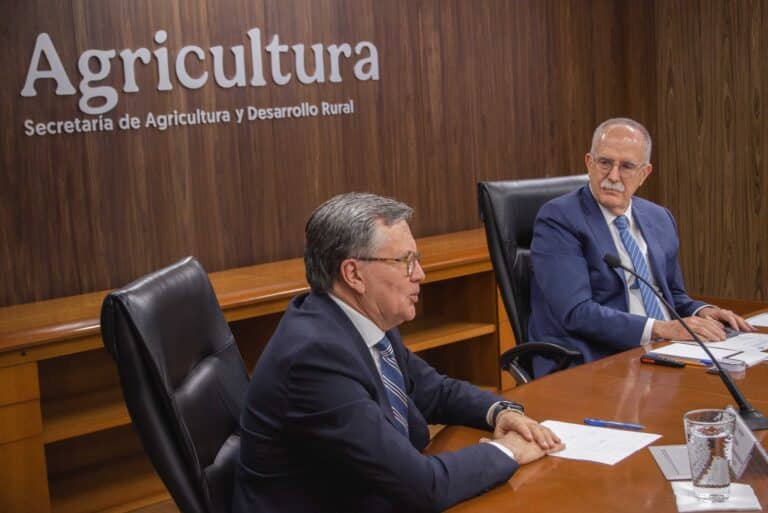Creating long-term public policies and repositioning agriculture on the agenda of the LAC countries could be key in promoting the productivity and competitiveness of agriculture in the region.

San Jose, 19 April 2016 (IICA). “Agriculture is not a simple business; you have to work from dawn to dusk, 365 days a year. It involves women and men, old people and young people, thanks to whose efforts we have food on our tables every day,” said the Director General of the Inter-American Institute for Cooperation on Agriculture (IICA), Víctor M. Villalobos, at the World Strategic Forum held this month in Miami.
Villalobos was invited to speak at the sixth edition of this major event, in the forum on Energy, Infrastructure, and Sustainable Development.
In his remarks, the Director General suggested that, although agriculture’s role in economic development in the Americas was a key one, governments, producers and the private sector still needed to focus their efforts on working together.
“Robust public policies should be implemented to promote investment at all levels of the agricultural value chain, from the producer who plants crops to the point of sale where the consumer acquires the product. We also need to promote innovation and develop modern mechanisms that reward entrepreneurship and preservation of the environment,” Villalobos observed.
The countries should ensure safe, balanced trade, he added, and avoid restrictions and protectionist policies. In his opinion, the challenges that the Americas need to address to create an environment that promotes efficient and equitable commerce are:
- Use of subsidies and mechanisms that distort trade
- Use of old, inadequate infrastructure
- Lack of better personalized business processes
- Inequitable integration into value chains
- Distortion of the market structure for input and service providers
Turning to climate change and the sustainable management of natural resources and biodiversity, Villalobos suggested that it was an area in which modern policies and substantive investments were needed. “Investment in these areas is essential for the survival not only of agriculture, but of society as we know it,” he commented.
The other speakers in the forum on Energy, Infrastructure and Sustainable Development were the Secretary of Economic Development and Commerce of Puerto Rico, Alberto Bacó Bagué; the Deputy Minister of Foreign Trade of Costa Rica, Jhon Fonseca; and the Executive Vice-President of Global Public Policy of Time Warner, Carol A. Melton. Percy Batliwalla, of Bank of America Merrill Lynch, served as the moderator.
Also involved in the two-day event were leading specialists, academics, senior officials of international and nongovernmental organizations, and representatives of the public and private sectors from all parts of the world. Other issues were addressed related to the global economy, finance, and innovation.
More information: evangelina.beltran@iica.int











